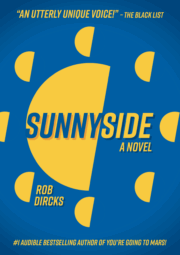How Do You Ask for a Blurb?
by Jennifer Brozek
 Blurbs… those short endorsements on the front and back of your novel. They are the icing on the cake of months of hard work. Sometimes, those pithy phrases are what it takes to make a sale.
Blurbs… those short endorsements on the front and back of your novel. They are the icing on the cake of months of hard work. Sometimes, those pithy phrases are what it takes to make a sale.
For new authors, and lesser known authors, getting the right blurb for your book can make a difference. It can help the author and the novel’s reputation. More importantly, it tells people who are not familiar with you that someone else read this book and found it worthwhile. That the person the blurb is from is willing to put their name behind it.
While the dream would be to get a household name to recommend your book, the reality of the situation is that you should get blurbs from other authors in the genre you are writing in, or from authors known to read the kind of stuff you have written. The higher up the food chain you can go, the better.
How Do You Ask For One?
How do you ask for these blurbs without making a nuisance of yourself? You do your research. Many professional authors have “blurb and review” policies in place on their websites, mostly out of self-defense. An author can read only so many books when they are not writing or doing their own story research. Some of these policies may be “No. I will not blurb your book.” Some of them may be “Talk to my agent.” Whatever the posted blurb policy is… follow it. That’s the polite and correct thing to do.
If you have an agent, you can talk to them about talking to the agent of the author you’d like a blurb from. Your agent should have a decent handle on who can be approached and who should be avoided. If you don’t have an agent, you need to do things the old fashioned way: ask.
Most of the people I speak to about blurbing my books are people I have met at conventions. I have had conversations with them about everything and nothing. Sometimes, I am able to ask them right there if they would be interested. Sometimes, years after I have met them, I email them and ask. I accept the answer they give me. Courtesy and politeness is key. If someone says no. That’s that.
When writing to an author you have not met before, you want your email to be as straightforward as possible.
Dear Author,
I have a young adult book, [Awesome Book Title], coming out from Tor in June 2016. I’ve read and loved your [YA] series. I think readers who like your series might like my forthcoming novel. I was wondering if you would be willing to read it and give it a blurb.
Sincerely, Me.
For those of you writing to an author you might have only interacted with on social media, the email is still very similar.
Dear Author,
It was good speaking with you Facebook about our mutual love of Singapuras. Just recently, I read your novel, [Novel Name]. It was wonderful. [Compliment. Compliment.] I have a military space opera I am self-publishing in December 2015. My editor is the wonderful [Awesome Editor]. I was wondering if you would be willing to read it for a blurb.
Sincerely, Me.
Be upfront about the genre, publication date, and publisher. If you are self-publishing, mentioning your editor (who is not you) is a good cue to the author in question that self-published or not, your novel has gone through a full edit cycle and they will not be assaulted by typos and run-on sentences. Always make certain all correspondence is as professional as possible. Though you may want to plead and beg, it never comes across well in an email.
They Say Yes!
What do you do if the author you want the blurb from says yes? The first thing I do is ask them about their schedule. I find out what they are working on and when it is due, then I give them a due date for the blurb. I never make it too far in the future. It needs to be far enough away that the author has time to read your book but close enough that it remains on their radar. Busy people get more things done.
Then I ask them if I can send them reminder notes. If they say no, then no, I don’t send them anything until the last week the blurb is due. It is usually along the lines of, “Hello. I just wanted to see if you’ve had a chance to read my novel. I need the blurb by this Friday.” If they say yes, I send a reminder note at the halfway point and the last week unless they request specific dates for the reminder notes.
The other thing I do is try to make sure the blurb is not actually due on the due date I’ve given them. I cannot count the number of times an author has come back to me and said, “I meant to get to it. It’s on my list of things to do this week. When is absolute your drop dead date?” That’s when you let them know what the actual drop dead date is.
Most authors give a due date in advance of the actual due date. We all understand that life happens.
Follow-through Falls Down
There will be times when an author has agreed to a blurb doesn’t get back to you. At all. There are any number of reasons for this. The most likely is that they did not have enough time to read the book after they agreed to do so. Or, they didn’t feel strongly enough about your book to give it an endorsement and would rather not tell you that directly in person or in email. Send the reminders you are allowed. If it is nothing but radio silence, then you let it go.
There will be times when the author does say, “I’m sorry, this just didn’t do it for me. I can’t give you the blurb.” It is a terrible sting but all you can do, and should do, is thank them for their time and that you appreciate them letting you know either way.
Polite Professionalism is Key
No matter how you approach the author you wish to get a blurb from—via their agent, in person, or in email—remember to put on your professional’s hat. If they say no, thank them for their time and move on. If they say yes, work within their schedule and their preferences. In the end, you will get the blurbs you want.
•••
Jennifer Brozek is a Hugo Award-nominated editor and an award-winning author. She has worked in the publishing industry since 2004. With the number of edited anthologies, fiction sales, RPG books, and nonfiction books under her belt, Jennifer is often considered a Renaissance woman, but she prefers to be known as a wordslinger and optimist. Read more about her at www.jenniferbrozek.com or follow her on Twitter: @JenniferBrozek.


